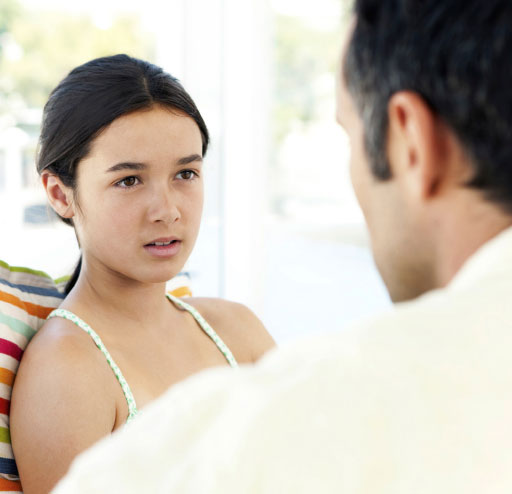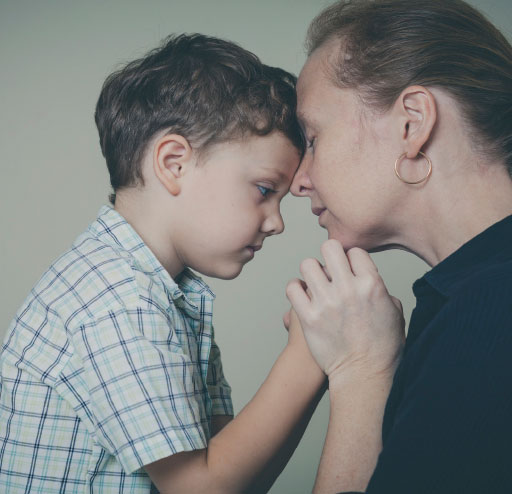Download a printable version of this article (PDF 379KB)

Has your child ever randomly changed a behaviour or surprised you with an out-of-the-blue response? Have you ever been completely floored by the teenager who unexpectedly made you breakfast in bed or even by the toddler who has always done grocery shopping so well but then inexplicably throws tantrum of the year one day in the fruit and veg section? I bet you have.
Our surprise at their odd, sudden generosity and, equally, our horror at their out of character performance in the supermarket occurs because we just didn’t think that was going to happen. But rest assured, it did.
You see, no behaviour is truly random in its manifestation. Behaviour is almost always a result of the thinking that precedes it. As adults, we make the decision to embark upon a fitness campaign only when we contemplate the difficulties we’ve been encountering getting up the stairs, fitting into our favourite clothes or upon the advice of a doctor. None of us wakes up in the morning accidentally on a treadmill wondering how on earth we got there.
“Your positive action combined with positive thinking results in success.”
– Shiv Khera
This is also the case with your child and their seemingly odd and unpredictable behaviours. What we can guarantee is that they were thinking before that behaviour. The teenager we’ve referenced may have noticed the efforts you’ve been going to preparing meals that they could make themselves. They may even be positioning themselves for a pocket money raise! But we can be fairly certain that the behavioural choice to make you breakfast was devised after some kind of positive thinking and planning.
Equally, the child who embarks upon the shopping centre tantrum has been thinking too.
It could be that we were grumpy with them about how slow they were getting ready to go out and the subsequent strain in our interactions or they could be thinking “How come Mum/Dad never buys me the kind of yoghurt that is clearly the best one. These horrible people clearly don’t love me. I’ll show them how much this matters to me!”
If this makes sense to you, then it should also make sense that positive thinking has a better chance of leading to positive behaviour choices. Commensurately, negative thinking has an increased chance of leading to negative behaviours.
Our parental imperative then, is to compel our children to thinking positively.
Let’s examine some parental defaults of telling and not asking when we address behaviour with our children and the likely thinking in our children this triggers:
| Possible Parental Statements | Probable Thinking in Child |
| Deliver a stern lecture. | “Blah blah blah” |
| Send them to their room to “Think about what they’ve done”. | “No way am I thinking about this. It’s not even my fault! Where’s my PS4 hidden anyway?” |
And now let’s look at what’s likely when we switch to asking questions:
| Ask for an explanation via “Hey, what was that all about?” | Probable Thinking in Child |
| Ask how they think they made you feel when they behaved like that. | “Hmmm. Sad?” |
| “Nah, I was actually embarrassed.” | “No way am I thinking about this. It’s not even my fault! Where’s my PS4 hidden anyway?” |
| Ask what they could do so you no longer feel embarrassed, but proud instead. | “I’m not sure. Clean my room? Oh and promise not to do that again.” |
| “Yeah that’d be great. Thanks my little friend.” | “Thanks Mum/Dad. Oh and I’m sorry about today.” |
I’m hoping that you’ve been able to see the progression through these tables from negative thinking towards a more positive thinking pattern. As a result, we have established a greater likelihood that the post-conversation behaviour will be positive.
Sometimes we parents and carers put substantial thought and worry into what we’ll say to our children when they choose the wrong behaviours. Perhaps if we allocated some of that precious time to thinking about what we’ll ask instead, we might generate the thinking that makes all the behavioural difference in our children.








